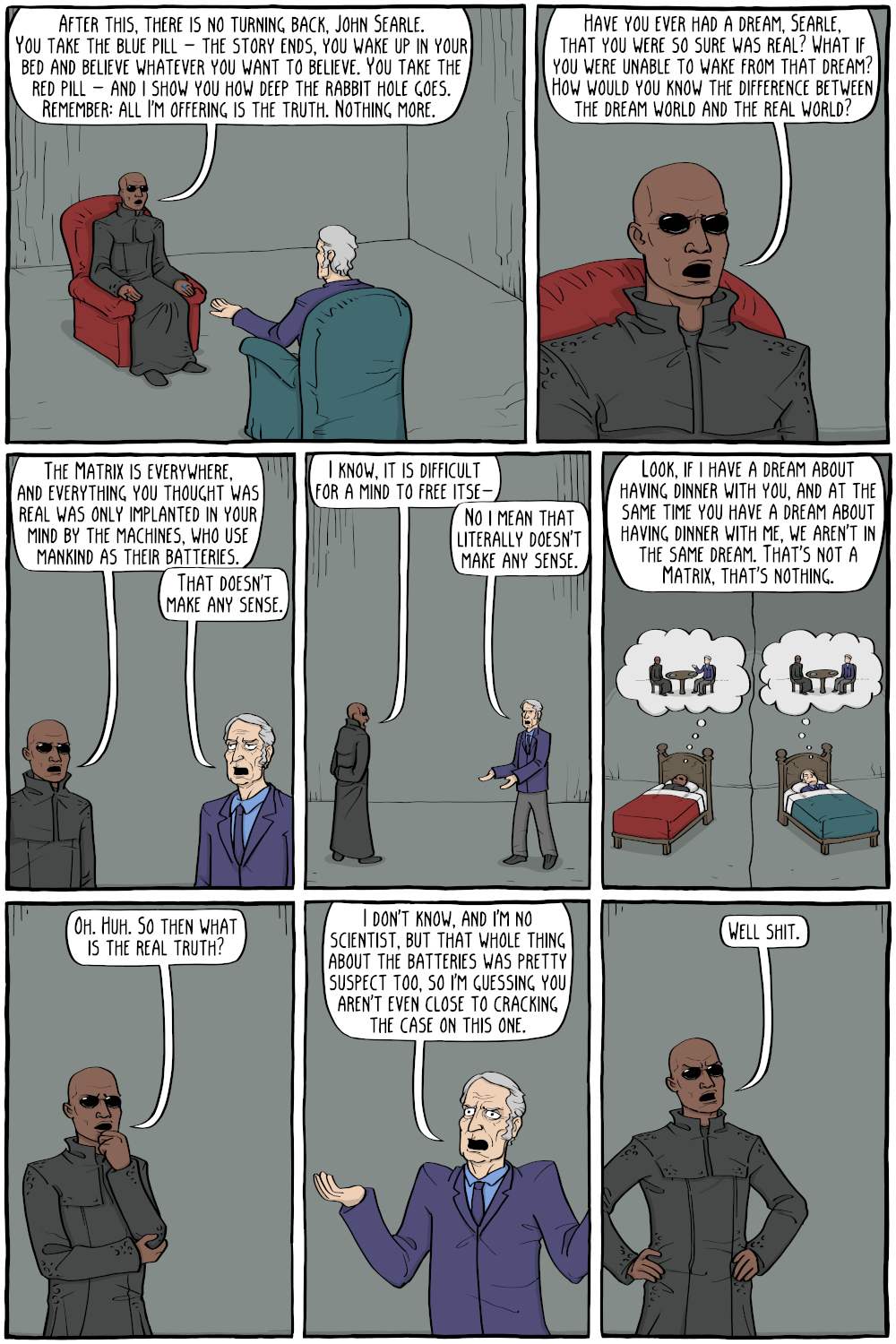
When The Matrix came out, the New York Times reached out to philosopher of mind John Searle to write an article about the philosophical implications of the movie, most likely expecting some kind of bland article about how it was a recreation of Descartes. Instead John Searle wrote them saying the movie was incoherent, for the reasons outlined in the comic. The article was never published on account of the fact that no one wanted to read that the movie was incoherent, not to mention most viewers probably wouldn't share Searle's intuitions about its incoherence. Ironic, since John Searle is one of the only modern philosophers to hold seriously the position that most people hold without any philosophical training - naive realism. That is to say, the belief that we experience reality directly. If this belief is true, of course, he is perfectly correct to say that the Matrix is incoherent, because a dream would be separated from reality via a causal connection, so we could have no interactive component.
Most people reject this upon further thought however, after all massively multiplayer video games, where the game world is experienced by each player independently but kept track of my a central computer, are perfectly coherent to most people. Philosophers usually reject this because they read Kant, which John Searle certainly did, but as far as I know he never played WoW so that's probably where he went astray.
Permanent Link to this Comic: https://existentialcomics.com/comic/332
Support the comic on Patreon!![[In bed]
Me: "ok, big day tomorrow, need a good night's sleep."
My brain: "but have you also considered that one day you are going to die?!" A philosophy webcomic about the inevitable anguish of living a brief life in an absurd world. Also Jokes](http://static.existentialcomics.com/title.jpg)










